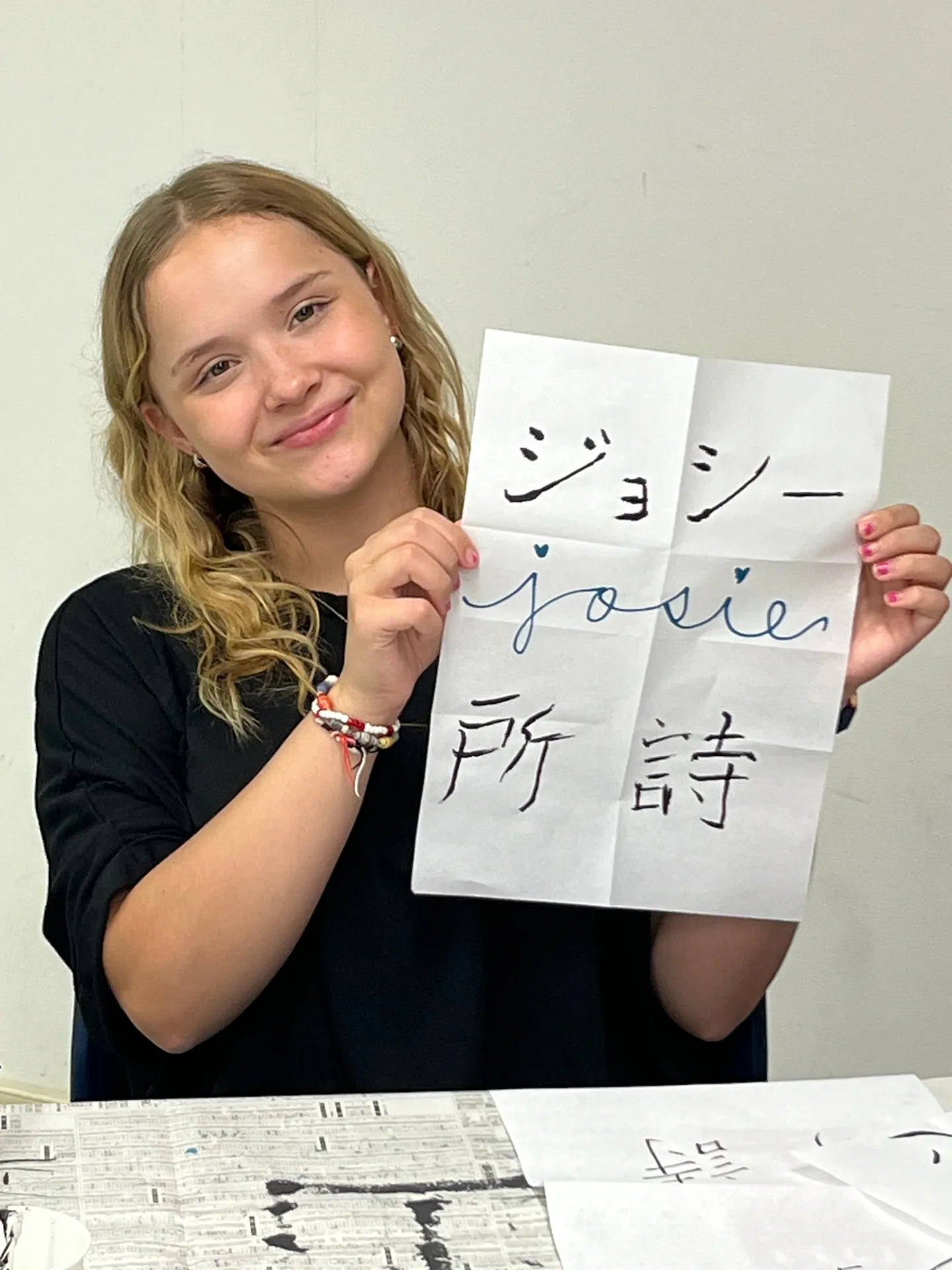From a Desperate Sender, to Whom it May Concern
“My feet were bricks, and every step thudded and scraped the ground: concrete against earth. Before I left for this trip, I googled the average temperatures for Japan in June. Although the site promised refreshing, 65-degree days throughout my two-week stay, the sun thrust its rays upon us now at 90 degrees each, and the humidity read slightly lower than a sauna. Still, this Buddhist temple was the last stop on that day’s tour, and if I focused on the surrounding pathway,I almost didn’t notice the sweat droplets racing each other down my back. The temple stood in a cypress forest with a ceiling of green leaves and a floor of red dirt. Every so often, a cool breeze caressed my face and shoulders. If I closed my salt-stuck eyes and leaned into its gentle arms, it promised to lift me from the dust and lay gentle kisses upon each flaming joint. I could just feel my heels departing when we arrived at the Torri signifying the temple’s entrance–a sky scraping, seamlessly scarlet pine gate. Many beautiful places of worship lay beyond this point, but none more eye-catching than the prayer wall.
This immense wooden structure was located in the center of the temple. Although aged Buddhist men walked to and fro, across and behind, this wall stood with more wisdom and self-exclaimed honor than any robed monk. As I walked closer, tiny pieces of card stock became visible, peppered along its cracking surface. Different handwriting sprawled across each piece–careless, loopy cursive, and all-too-careful, tightly printed letters. The hands of mothers, the hands of children, and the hands of the lonely left their mark upon these notecards. They wrote prayers to the Buddhist gods, to the Christian God, to the universe, or to some unknown force, some last hope for a desperate sender. Some of these people wrote simply to the air around them, to the hands shaking the branches above them and pushing the moon in and out of each day. They sent their messages with only a return address and trusted the cosmic mailman to leave it in the right hands. I wonder if those who write to Jesus know that his P.O. Box can not be found here.
Before I could approach the wall, I saw a small table with notecards and a place for rusty coins and crinkled bills. These worshippers can not make their requests for free. They would not sit at the foot of their bed or walk along windy, tree-lined sidewalks talking to their creator. They passed their money into the payment bin. They taped it up. They hoped that the wind would not push it off the wall, out of the temple, and far, far away before it could reach its unknown receiver. I did not slip my hands underneath the blank paper or wrap my sweating palms around the available ballpoints, but I walked along the edge of the wall, reading what each of the sweating palms before me had left behind. Each prayer was slightly unique from the next, the way some eyes wrinkle a bit more than others, some smiles stretch wider, and some teeth make better fences than doors. Even so, their messages sang similar melodies, despite their emergence from different lips–they sang requests for long lives and happy marriages and good fortune. I wish I could see these hands as they wrote their letters, and I wish I could see what they look like now. I wish I could know whether these hands were wearing wedding rings or petting the head of a child or lying atop one another, with only a wall of thin wood between them and 6 feet of earthworms.
I finished my walk along the wall’s perimeter and met the rest of my group outside the temple gates. I listened to our leader, a Christian missionary, as he told us more about each place, object, and symbol of worship. I listened to the others’ comments–comments about the monstrous temple, how many people passed in and out of the gates that we stand under now, the prayers that still echoed, whispered, and wound about their heat-worn minds. I listened. When it came time to pray, I intertwined my fingers with the person beside me, I bowed my head. I listened.
The prayer began, “Heavenly Father…”
I know the Father this missionary speaks of. His voice has etched songs upon my willing flesh, and mine has reached His ears as I lay fetally within His arms. He has offered his journals for me to read when I wonder, for me to learn of the life and the death that came before mine. I know His name, He told me His name. I can call it out now–will I call it out now?
I listened. My feet were bricks. Thud. Scrape.
– Josephina Wieczorek Bettendorf
